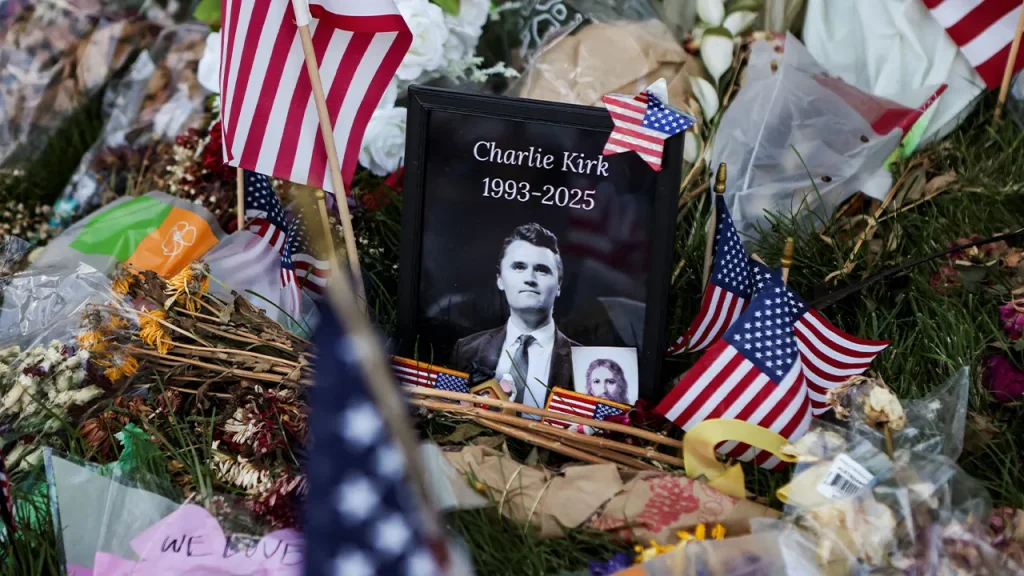One Month After Charlie Kirk’s Assassination: Questions Remain Unanswered
A month has passed since Charlie Kirk, founder and CEO of Turning Point USA (TPUSA), was fatally shot at Utah Valley University (UVU), yet many questions about the assassination remain unanswered. The university has published a FAQ section on its website addressing basic details of the September 10 event, but crucial information regarding security preparations and coordination remains vague. Local media outlets report that public records requests concerning the assassination are still pending, with the university citing a “high volume” of inquiries as the reason for delays. Despite Utah’s Government Records Access and Management Act requiring responses within ten business days, journalists are still waiting for detailed information about TPUSA’s event application and the security measures in place that day.
The assassination occurred during the first stop of Kirk’s “American Comeback Tour” at UVU, where a single shot fired from approximately 200 yards away struck him in the neck. Utah Department of Public Safety Commissioner Beau Mason reported that the shooter fired from a nearby roof. Kirk was quickly transported to a hospital but was pronounced dead shortly after. Utah Governor Spencer Cox described the incident as “a political assassination” and “a dark day for our state” and nation. Cox particularly noted the tragic irony that Kirk, who “believed in the power of free speech and debate to shape ideas and to persuade people,” was killed while engaging in that very democratic process. The assassination came as a profound shock, occurring in broad daylight on a university campus during what should have been a routine political event.
Tyler Robinson, the accused assassin, now faces serious charges including aggravated murder, obstruction, and witness tampering – crimes that could potentially carry the death penalty if he’s convicted. His arrest in St. George, Utah, came after his own family members confronted him about his resemblance to suspect photos released by law enforcement, which reportedly led to his confession. Yet significant questions about Robinson’s actions before and after the shooting remain unexplained. While surveillance footage shows him arriving on campus at approximately 8:30 a.m., investigators have not publicly clarified how he managed to escape from the scene after firing the fatal shot. These gaps in the timeline have fueled ongoing questions about security failures that may have contributed to Kirk’s death.
Exactly one month after the assassination, Robinson’s legal case is beginning to take shape, with his attorneys recently requesting permission for him to wear civilian clothes and appear without restraints during court proceedings. His legal team cited precedent from the Bryan Kohberger case, arguing that repeated images of their client in jail attire could prejudice potential jurors and violate his constitutional right to a fair trial. The attorneys specifically expressed concern that such imagery might lead jurors to perceive him “as guilty and deserving of death” before any trial has even begun. Robinson has not yet entered a formal plea and is scheduled to appear in court again on October 30, where more details about the prosecution’s case may emerge.
The assassination of Charlie Kirk represents more than just the tragic loss of a prominent conservative activist – it highlights growing concerns about political violence in America. Governor Cox framed the killing as an affront to the founders’ vision as the nation approaches its 250th birthday, suggesting the attack struck at fundamental American values of free speech and democratic discourse. The killing has prompted national discussions about the safety of political figures, particularly those with controversial viewpoints, and the responsibilities of institutions hosting politically charged events. As TPUSA plans to continue its events despite this tragedy, questions about how to secure public political discourse without chilling free speech have taken on new urgency.
As investigations continue and Robinson’s case proceeds through the legal system, many are calling for greater transparency from UVU regarding what happened on September 10. The university’s limited disclosures about security arrangements – merely stating that “Kirk’s lead security staff coordinated with UVU Police Chief Jeff Long regarding the security measures” – have left the public wondering whether appropriate precautions were taken. The pending public records requests might eventually reveal whether security was adequate for an event featuring a controversial political figure, or if opportunities to prevent the tragedy were missed. Until these questions are answered, Kirk’s assassination remains not only a devastating loss for his family, friends and supporters, but also a troubling reminder of the fragility of peaceful political discourse in today’s increasingly polarized America.


